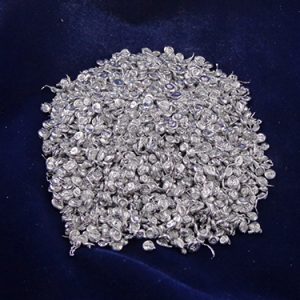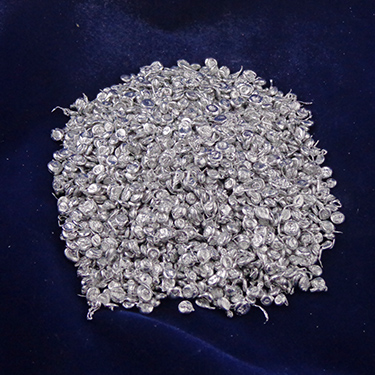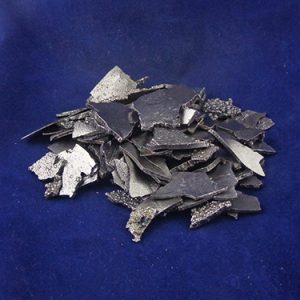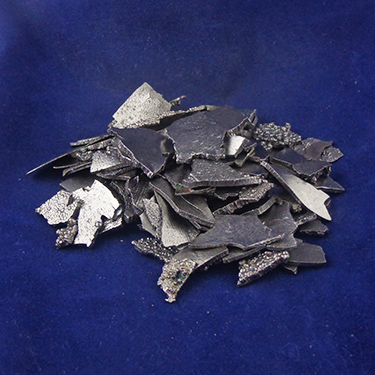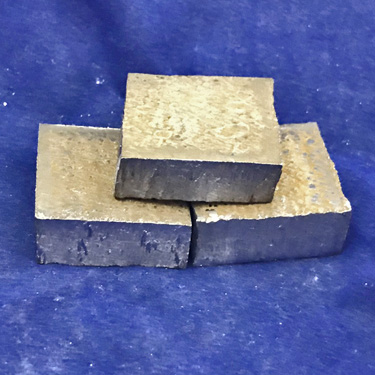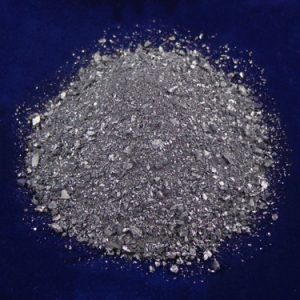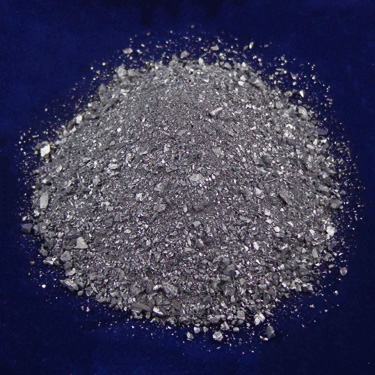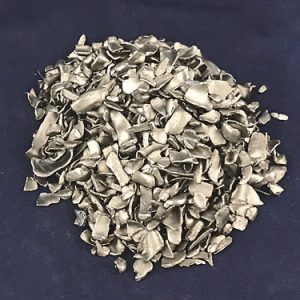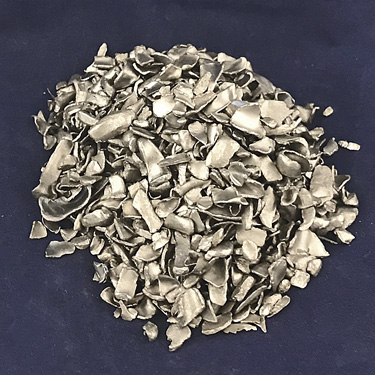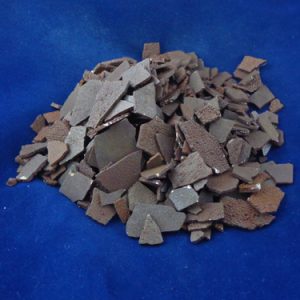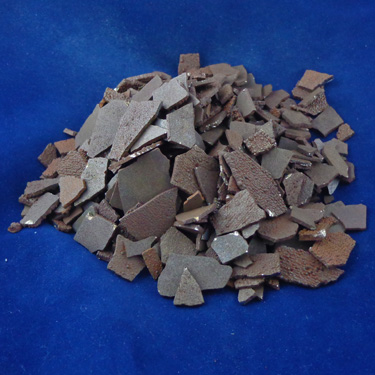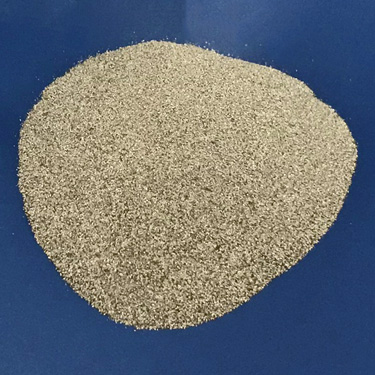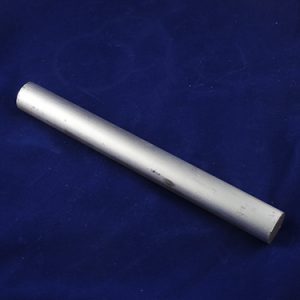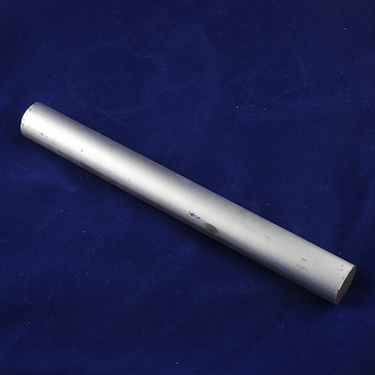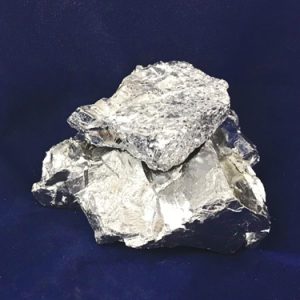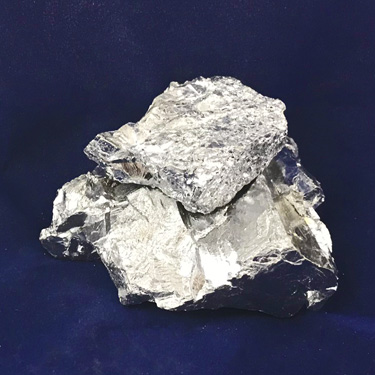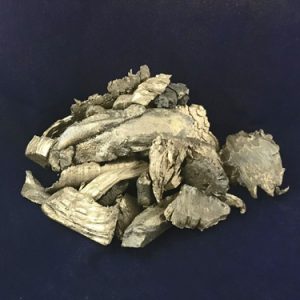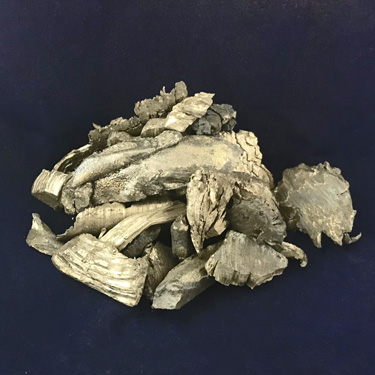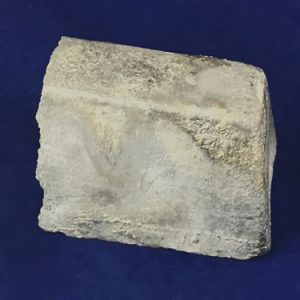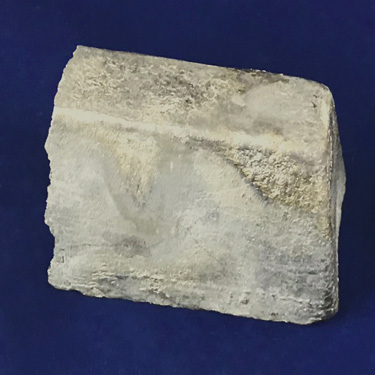Many manufacturers require pure metals in a range of different shapes to add as additives when making products. These metals provide different properties to the products, such as hardening metals, providing corrosion resistance, or reduces oxidation. Silicon is one metal found in a wide range of industries due to its versatility and cost-effectiveness. Pure silicon…
Aside from the other metals listed throughout the site, Belmont welcomes inquiries regarding the following metals in pure form as well as alloying elements:
Antimony
Used heavily in the Semi-Conductor Industry, Antimony in metallic form is bright, silvery, hard, and brittle; in non-metallic form, it is a grey powder
Beryllium
A high-melting, lightweight, corrosion-resistant, rigid, steel-gray metallic element used as a copper alloy for springs electrical contacts, and nonsparking tools
Chromium
It is steely-gray, lustrous, hard and brittle metal which takes a high polish, resists tarnishing, and has a high melting point
Cobalt
This magnetic, silvery white metal with a faint bluish tinge is used in electroplating and for special alloys with particularly specific applications
Gallium
A soft silvery metal that is used primarily as an agent that make alloys that melt at low tempratures. Gallium is also in electronics for various applications
Lithium
A soft, silver-white metal that is used in several industrial applications, including heat-resistant glass and ceramics and high strength-to-weight alloys used in aircraft and batteries.
Magnesium
A light, silvery-white, moderately hard metallic element that is used in structural alloys, pyrotechnics, and flash photography.
Manganese
A gray-white or silvery brittle element it is mainly known for use in alloying with steel, it is also alloyed with other metals to form highly ferromagnetic materials
Niobium
A soft, grey, ductile metal, it is used in various superconducting materials as well as various applications in welding, electronics, optics, and jewelry.
Silicon
A grey crystalline solid or brown amorphous powder, Silicon is used in transistors, rectifiers, solar cells, and for many alloys.
Tellurium
A rare, brittle, silvery-white metal, it is used to alloy stainless steel and lead, in ceramics, and in thermoelectric devices.
Titanium
A strong, low-density, highly corrosion-resistant, lustrous white metallic element that is used to alloy aircraft metals for low weight, strength, and high temperature stability.
Zirconium
A greyish-white metallic element, it is used as a coating in nuclear and chemical plants, asa deoxidizer in steel, and alloyed with niobium in superconductive magnets.
Read More
Showing all 24 results
Featured products
RELATED POSTS

Pricing Trends for Minor Metals: Magnesium, Silicon, and Manganese Raw Materials
As product production goes into overdrive to meet rising consumer demand that has returned to pre-pandemic levels, minor metals are showing price increases as smelters are running at 80% to 100% capacity. Minor metals are by-products which come from base metals during the smelting process. Some of these minor metals are magnesium, silicon, and manganese…

Cobalt Applications: Increasing Demand for This Metal Impacting Availability
Cobalt has seen rapid market growth for the past few decades. It has wide ranging uses in a number of applications as prices have skyrocketed for this metal since 2017. With the increase in demand, and its use in certain specific applications, manufacturers have to consider whether they will have enough supplies for their current…

Manganese Availability and Applications: It’s Growing Importance
When it comes to using certain metals in manufacturing processes, the pure state of the element cannot be used due to having negative properties. In the case of manganese, this metal is too brittle to be used on its own. However, when it is used as an additive in other base metals such as steel,…

Zirconium: An Alloying Element with Copper Alloys
Copper alloys are widely used metals for manufacturing purposes around the world. From copper pipes, electrical wires, mechanical components and other applications, manufacturers are creating the products for companies to run their operations and for the public to improve their daily lives. This unique alloy offers excellent thermal and electrical capabilities. Other elements will also…

Commodities Pricing Update: April 2020 Prices for Metals
With the growing pandemic affecting every country around the world, the market has been thrown into chaos regarding future uncertainties of the economic landscape. Companies are closing to prevent the spread of the coronavirus to workers as employees are telecommuting. Many manufacturers have cut back on their production lines or are switching over their lines…

Global Manganese Market: How Chinese Tariffs Affect This Commodity
Many base metals need to be alloyed with other materials to help improve their mechanical and structural properties. In addition, metals may be added into the melt to remove impurities. Manganese is one such material that lends a range of positive characteristics and aspects when combined with other base metals and alloys. It is mainly…

Oversupply and Slow Demand Creating Fluctuating Cobalt Prices into 2019
When it comes to tools, superalloys, magnets and batteries, cobalt is a key material used in manufacturing products we need in our daily lives. Purchasing this metal at an acceptable price and answering consumer demand can influence a manufacturer’s operations now and in the future. When looking at the price market, there has been drastic…

Antimony: Possessing Durability and Versatility When Alloyed with Other Metals
Semiconductors, machine bearings, and utensils are all made from varying amounts of metal alloys. Yet these items also possess one common factor: antimony. Antimony is a semi-metal element that comes in both a powdered form as well as a hard and brittle metal. Possessing a silvery, blush white appearance, this element is highly desired when…

Benefits of Minor Metals for Your Manufacturing Business
Using minor metals from Belmont Metals in Brooklyn, NY can greatly improve your manufacturing process. These metals are often added to master alloys to improve certain desirable properties. For example, electrolytic manganese is often added to steel, aluminum and copper master alloys in order to increase the metal’s ferromagnetic properties. Types of Minor Metals and…

Beyond base metals
Minor metals are major players in high-tech innovation Typically the word “minor” refers to things of lesser importance, size or degree. Minor metals, however, are far from inferior—they are major players in a wide range of specialty, high-tech industries and used to create alloys with desirable mechanical properties, including deformability and corrosion resistance. Minor metals…

